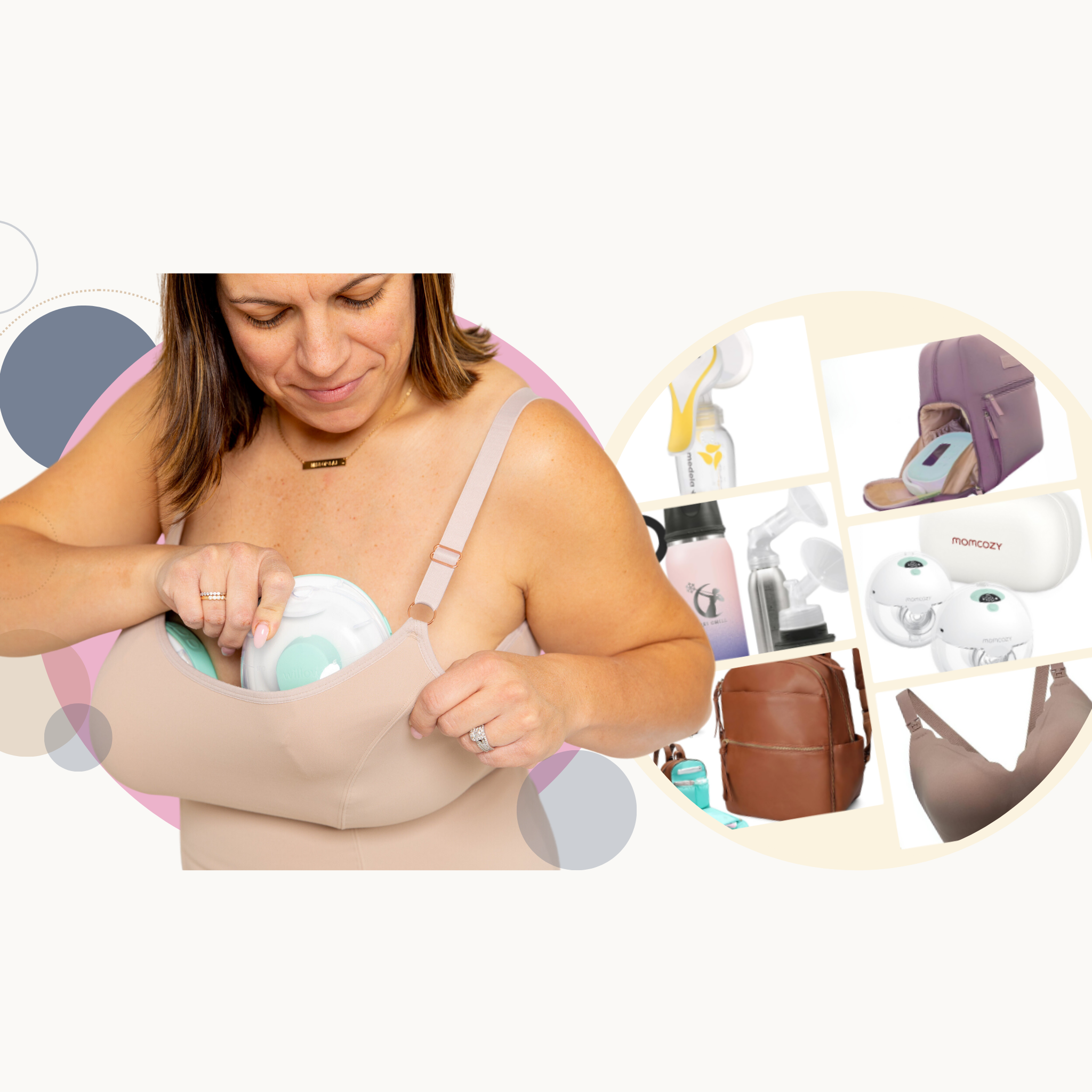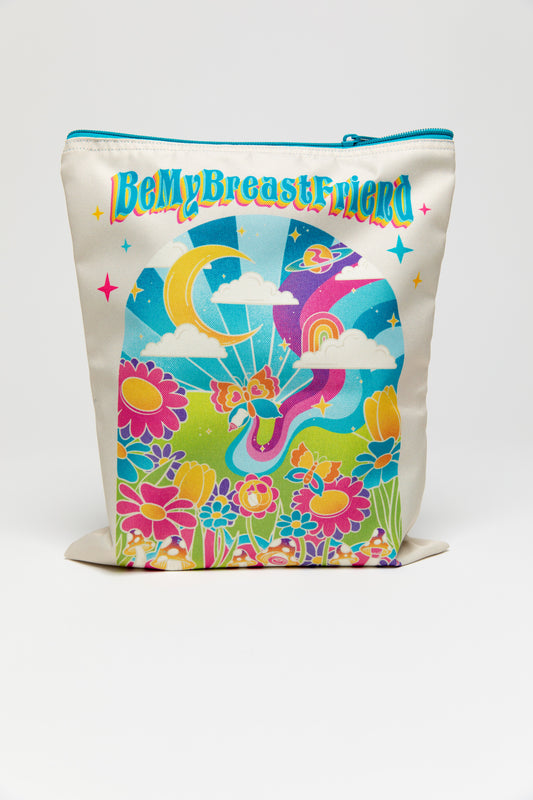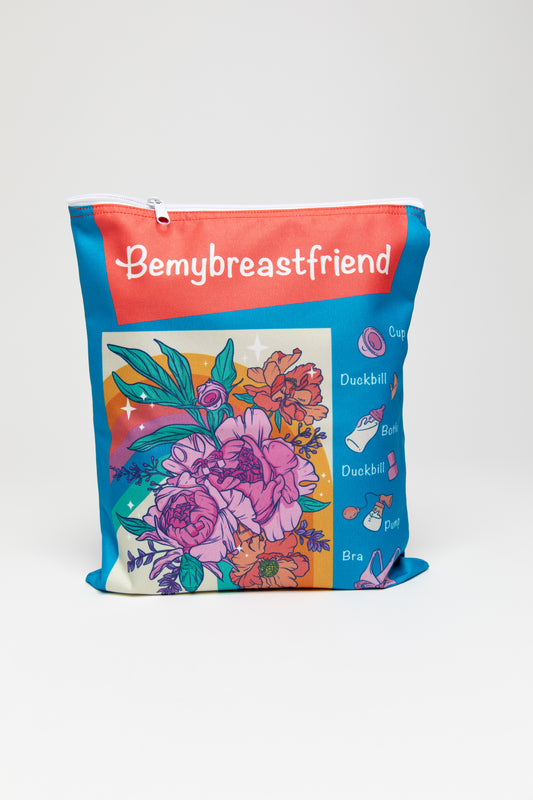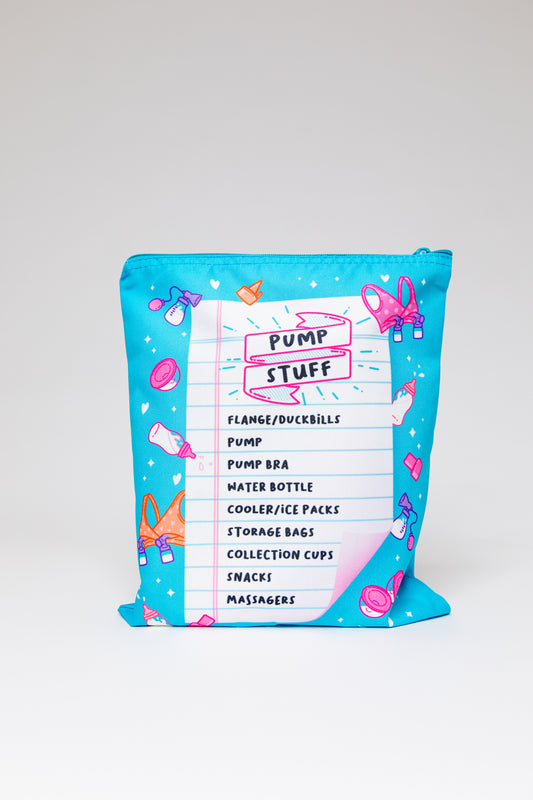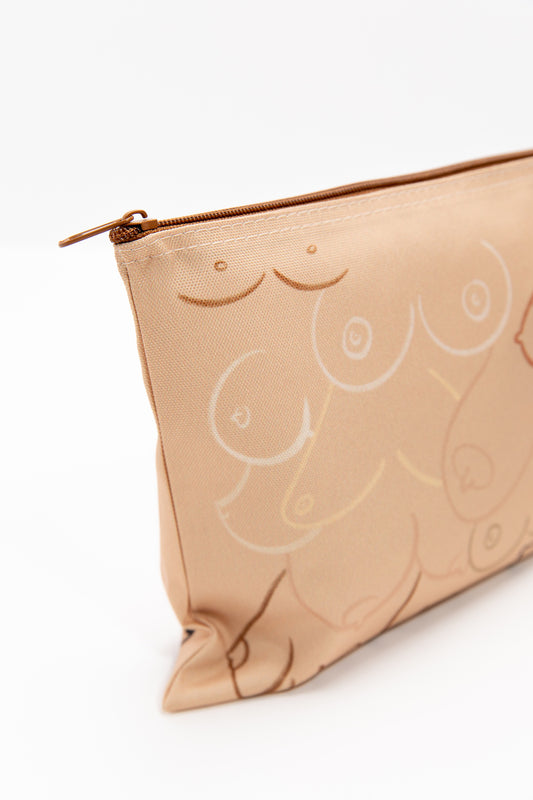
Breastfeeding can feel like a full-time job for many moms. Just like any full-time gig, it comes with some requirements that you may not have been aware of. One of these requirements is the daily consumption of vital nutrients. As you produce breastmilk for your baby, you are depleting some of your body's precious reserves.
Enter: Supplements.
In this blog post, I will break down some supplements breastfeeding moms should consider taking to make sure you and baby are getting all of the proper nutrition that you both need. However, this blog is not to provide medical advice, solely education. Any medical decisions you make should be discussed with your medical provider.
Why Take Supplements While Breastfeeding?
You'd think you could get everything you need from a balanced diet, right? In theory, yes. But in reality, it's pretty tough to consistently eat a perfectly well-rounded diet while juggling a new baby, sleep deprivation, and possibly other children and/or a job outside the home. The supplements breastfeeding moms should consider taking are designed to fill the gaps, ensuring both you and your baby are covered.
Keep Taking that Prenatal Vitamin!
Perhaps you're wondering why your OB is asking if you are still taking your daily prenatal vitamin even though you're no longer pregnant. Well, as a breastfeeding woman, your body is still working overtime. Making enough milk to meet your baby's needs takes energy and nutrients, and prenatal vitamins (or as some companies call them, postnatal vitamins) help ensure you're getting everything you need.
Prenatal Vitamins I recommend:
-
FullWell Prenatal – Expertly formulated by a registered dietitian to fully cover your vitamin & mineral needs before, during, & after pregnancy, with key ingredients such as folate, choline, and vitamin D.
-
MegaFood Baby & Me 2 Prenatal - Doctor-formulated for optimal nutrient absorption - Includes methylated forms of folate and B12, plus Choline to support baby’s brain and spinal cord development.
-
NEEDED Prenatal – A well-rounded vitamin supplement covering all the basics and more, for comprehensive nourishment before, during, and after pregnancy, including B12, Choline, and D3.
- Seeking Health Optimal Prenatal - This fertility supplement offers the key nutrients that are necessary to support fetal development, and to support pregnant women on their journey, from conception all the way through breastfeeding.
Vital Nutrients and Their Food-Based Alternatives
It's very possible that your prenatal vitamin alone isn't enough to support your body's postpartum needs. There are so many options out there when it comes to supporting your health and your baby's, many of which are natural, but some of which are better found in OTC supplements. As with everything, consult your healthcare provider with questions regarding your specific situation. Here are some vital nutrients you may need to have stocked in supplement form in your medicine cabinet.
Side thought -- Speaking of medicine cabinets...do you have littles running around who like to get into anything and everything? Make sure your medications are safely stored by grabbing yourself a few Medicine Lock Boxes!
#1: Vitamin D: Sunshine in a Bottle
One of the most important supplements breastfeeding moms should consider taking is Vitamin D. You may notice that the prenatal vitamin you took during pregnancy and the postnatal you are continuing to take in your postpartum period both contain Vitamin D. Vitamin D is essential for bone health, particularly in breastfed infants. There are a few options for Vitamin D supplementation to assure that you and your baby are receiving adequate amounts of the essential nutrient. You can either take a Vitamin D supplement of your own (see necessary dosage below), or dose your infant with one.
Infant Vitamin D Supplementation
Did you know that The American Academy of Pediatrics recommends that "a supplement of 400 IU/day of vitamin D should begin within the first few days of life and continue throughout childhood [and] any breastfeeding infant, regardless of whether he or she is being supplemented with formula, should be supplemented with 400 IU of vitamin D?" Read more from that study here.
Most pediatricians will recommend and even provide a Vitamin D supplement for your breastfed baby at one of your first appointments. You can put these drops directly into your baby's mouth or put them in a bottle of breastmilk as directed by your pediatrician.
Maternal Supplementation of Vitamin D
Another option to assure your baby is receiving adequate amounts of Vitamin D is to take a supplement yourself. The American Academy of Pediatrics also tells us that "maternal vitamin D supplementation with 6400 IU/day safely supplies breast milk with adequate vitamin D to satisfy her nursing infant’s requirement and offers an alternate strategy to direct infant supplementation." Here's the link to that study.
The amount required to satisfy your baby's needs may be more than what is available in your prenatal or postnatal vitamin, so definitely check your labels. Be mindful that your prenatal or postnatal vitamin probably already contains some Vitamin D, so you will need to make sure that any separate Vitamin D supplement only contains enough to fill the gap.
The NEEDED brand prenatal vitamin I mentioned earlier contains 4000IU per serving (8 capsules), and their Vitamin D supplement contains 2000 IU per 1 capsule. If you're doing the math with me, you may want to take one capsule of the Vitamin D supplements in addition to the prenatal to meet the AAP's recommendation for breastfeeding women.
Vitamin D Food-Based Alternatives
Looking to boost Vitamin D in some more natural ways? You can do this by eating egg yolks, oily fish, and fortified breakfast cereals. However, it's a good idea to supplement since getting enough Vitamin D from food alone is pretty challenging. Plus, if you live somewhere where sunlight is scarce, or if it's the dead of winter, daily vitamin D supplements are a must. If you'd like to look into some herbal remedies and body care that support women's health naturally, Earthley Wellness has tons of products you may like.
#2: Choline: Brain Food for Baby
Choline is one of the hidden gems of breastfeeding nutrients. Maybe you've never even heard of it! It's essential for your baby's nervous systems and brain development. Most prenatal vitamins and postnatal vitamins, like the NEEDED one I mentioned earlier, have Choline in appropriate amounts for breastfeeding women. NEEDED also has a separate Choline supplement you can find here. Remember to always check for the recommended dose.
Choline Food-Based Alternatives
Like Vitamin D, choline is abundant in eggs (especially the egg yolks), but you can also find it in meat, peanut butter, and beans. Still, remember that it can be challenging to consume enough choline from diet alone. So, this is one of the top supplements breastfeeding moms should consider taking.
#3: Iron: Keep Up your Energy
Were you given an iron supplement during pregnancy? After childbirth, many women are still low on iron, and such a deficiency can make you feel sluggish. This is definitely not ideal while you're caring for a newborn. Many prenatal vitamins contain an iron supplement, but if you're feeling off, you might want to ask you're healthcare provider is you need a little more. Be careful when choosing a postnatal vitamin. For pregnant women, iron can sometimes cause upset stomach, so many prenatal vitamins will not include it in order to ease morning sickness as much as possible.
Iron Food-Based Alternatives
Order that steak at your favorite restaurant on date night, mama! Foods like red meat and spinach are great for boosting your iron intake. But if you avoid animal products or are on a vegan diet, you'll definitely want to consider taking an additional supplement.
#4: Electrolytes: Staying Hydrated the Smart Way
As a breastfeeding mom, you may find yourself thirsty all the time. Hydration is key for milk production and overall health, but sometimes plain water just isn't going to cut it. Electrolytes help your body absorb fluids more efficiently, and they can give you the energy boost you need after a long night with your baby.
You guessed it! NEEDED also offers electrolyte support. (I swear this isn't an ad for NEEDED, they just offer really great products and anything you could need when it comes to supplements!)
LMNT is another popular brand for electrolyte supplements that doesn't contain all the extra sugar found in some other products.
Electrolytes Food-Based Alternatives
You can also get electrolytes from coconut water, sea salt, and good ol' fruits and veggies! So instead of grabbing loads of energy drinks, try making yourself a little mama cocktail with all some of that coconut water, a dash of sea salt, and some natural fruit juice! YUM!
Next time you're at the store, pick up some bananas, spinach, avocados, and citrus fruits as well. They're excellent sources of electrolytes. But let's be honest, it's not always easy to whip yourself up a spinach smoothie first thing in the morning, so adding an electrolyte supplement to your daily routine can be a good choice.
Allegra Gast is a registered dietitian and an IBCLC. She focuses on helping postpartum moms feel better. Allegra is a huge believer in the root cause approach and is always digging deeper into the why
The Supply Struggle - No Magic Pills Here
Many moms worry about their milk supply, and it's tempting to reach for lactation supplements or herbal supplements marketed for increasing production such as fenugreek or blessed thistle. But here's the truth: MOST issues with milk production are not going to be magically fixed with a pill. If you're struggling with your supply, it's more commonly due to issues with frequency of milk removal or pump part issues. Before trying a million different supplements, try adjusting your pumping or nursing routine, and if needed, talk to a healthcare provider or certified lactation consultant.
My first suggestion if you're wanting to increase your supply is to try power pumping or simply pumping more often. It's not glamorous, but it works. Some of my best tips for exclusive pumpers if you're just getting started are in this blog post. Dietary supplements advertised to boost milk levels usually won't immediately result in extra ounces unless you're putting in the work to remove milk from your breasts efficiently and consistently. I like to remind that these options, if they work at all, are only bandaids covering a larger problem.
Kelly Kendall and I discuss what a normal amount of breast milk in one session is - whether you're pumping or breastfeeding. Kelly shares tips like changing the time of day (or night rather in this situation) that you are pumping, making sure you are using the right pump for you, eating a well balanced diet, and whether or not supplemental things like cookies and teas really work to increase your supply.
Final Thoughts - Keep it Simple
At the end of the day, the supplements breastfeeding moms should consider taking are really about filling in the gaps. Odds are, a good prenatal vitamin plus staying hydrated and eating a healthy diet should cover you pretty well. Extra supplements are simply ways to help you make sure that you and your baby are thriving and your breastmilk is full of vital nutrients.
Curious about other OTC medications you can take as a breastfeeding mother? Check out this blog post for more information.


